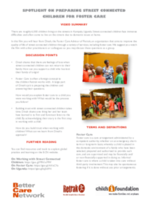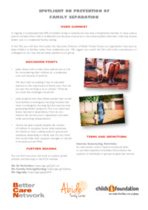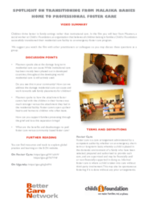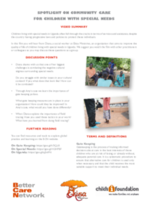The influence of maltreatment history and out-of-home-care on children’s language and social skills
This study examined the extent to which maltreatment history and the characteristics of out-of-home care correlated with the language and social skills of maltreated children.




